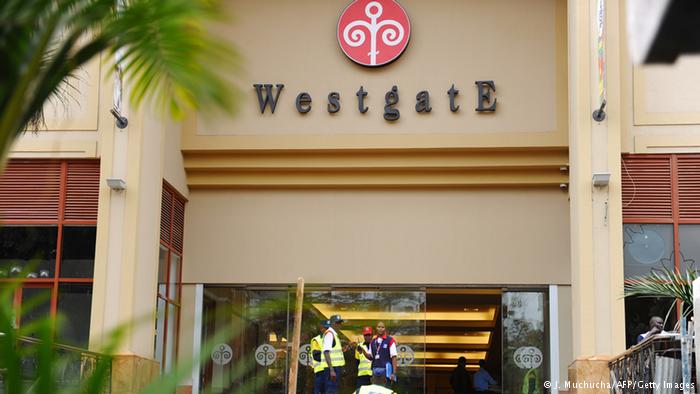Westgate shopping center reopens two years after Islamist massacre

 NAIROBI: KENYA’S WESTGATE SHOPPING center has reopened for business almost two years since Somali Islamists stormed the mall, killing 67 shoppers and staff over four days. Security has been stepped up in light of the attack.
NAIROBI: KENYA’S WESTGATE SHOPPING center has reopened for business almost two years since Somali Islamists stormed the mall, killing 67 shoppers and staff over four days. Security has been stepped up in light of the attack.
The complex, which prior to the attack was somewhat of a magnet for Kenya’s growing population of middle class and expatriates, was soon bustling with customers after reopening on Saturday morning.
Following an official ribbon-cutting ceremony held by Nairobi governor Evans Kidero and Atul Shah, owner of the main regional supermarket chain Nakumatt, shoppers queued to enter the mall through the newly-installed metal detectors.
Survivors return
Among the customers attending the reopening were several survivors of the massacre. Ben Mulla, a 34-year-old communications contractor who was shot in the siege said the reopening would “convince the world that terrorism is not bringing us down.”
Despite the memories, a small number of surviving employees have returned to work at the mall. Twenty-three-year-old Rachael Logilan, who has recommenced work at one of the center’s coffee shops, insisted she felt safe there.
“Of course it was a trauma. For three months I had bad dreams,” she said.
“It’s a nice place. You can meet different people. I feel secure.”
Long-lasting effect
Al-Shebab militants launched the attack in the shopping center on September 2, 2013. The Islamist terrorists said the siege was in retaliation for the Kenyan military’s involvement in fighting the Islamist group in Somalia. Upon entering the shopping center, the militants reportedly specifically targeted non-Muslims.
Since the Westgate attack, al-Shebab has claimed responsibility for a number of high-profile attacks, including a raid on a university in Garissa in April in which almost 150 people were killed.
The four days of carnage in 2013 have had a lasting effect on Kenya, severely damaging the country’s economy. Kenya’s tourism industry, renowned for its wildlife and Indian Ocean beaches, was particularly badly hit.
Source: DW